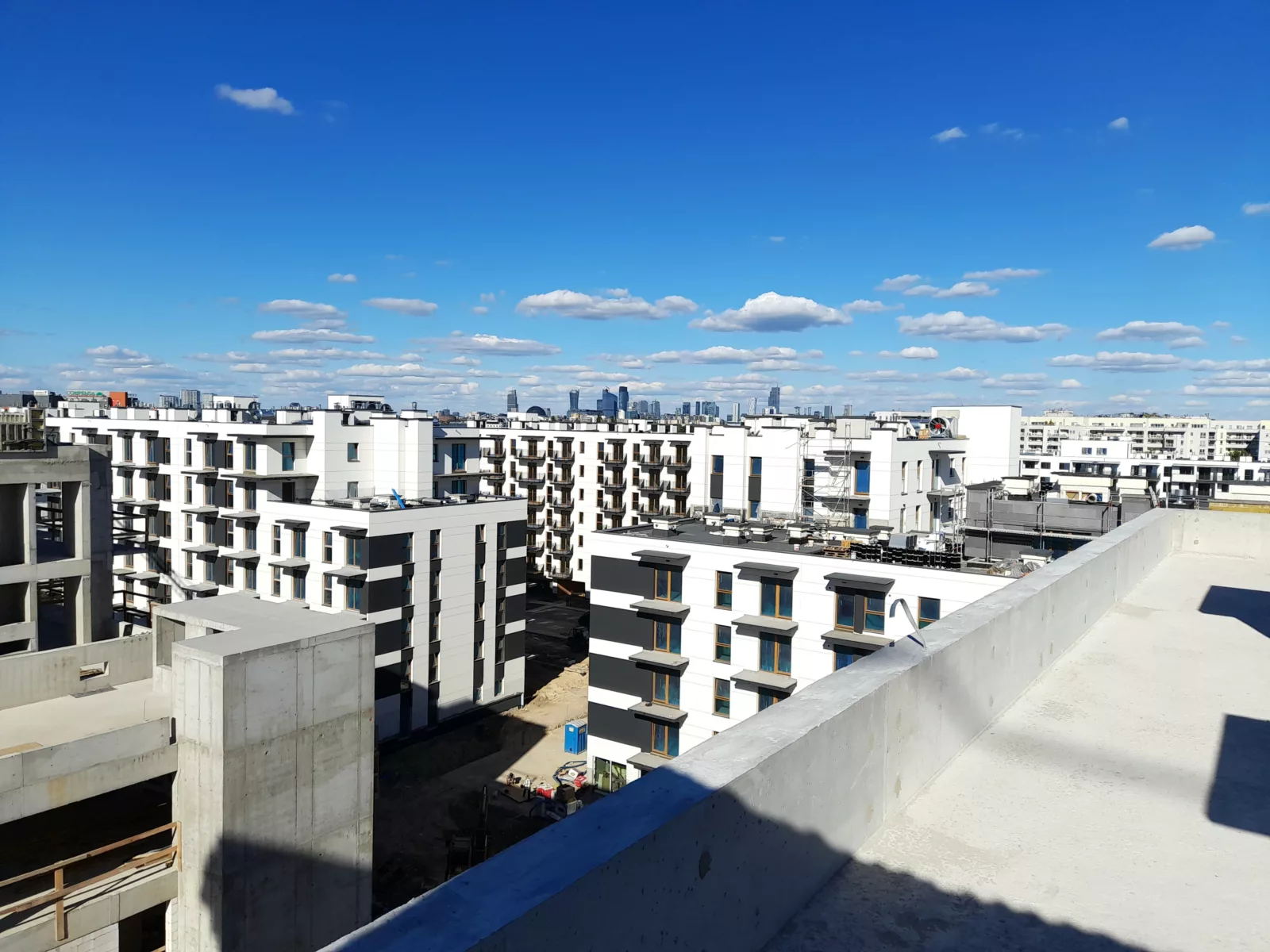The Polish economy recorded a 3.2% increase year-on-year in the second quarter, as well as a 1.5% quarter-on-quarter. These are better results than in the first quarter, when the Gross Domestic Product (GDP) rose by 2% year-on-year and by 0.8% on a quarterly basis. This confirms the preliminary data from the Central Statistical Office released earlier in August, which indicated a higher growth dynamic than economists had forecasted. According to Eurostat data, Poland achieved the highest GDP growth result in the entire European Union. The question is, how do these changes affect the real estate market?
Real Estate Market in Stagnation
So far, the effects of economic growth on the real estate sales market are not visible. The prices of apartments in Poland stabilized in August at a level similar to that of July. This is due to a decrease in the number of transactions and uncertainty among buyers, caused by consistently high interest rates and the bank’s rigorous credit policy. An additional factor dampening demand is confusion around the Loan for Start program, which is causing potential buyers who are counting on government subsidies to hold off on purchase decisions. There are still no specifics on this issue. Misunderstanding in the ruling coalition itself and conflicting announcements introduce an additional dose of uncertainty.
Data from the real estate agency homfi confirm this stalemate – in August 2024, the number of people interested in real estate purchases fell by 22.92% compared to August 2023, and by 5.72% compared to July 2024. But, Poland ranks third in Europe in terms of the number of apartments given per 1,000 inhabitants, and the dynamics of residential construction remain high. This is evident in the statistics of the homfi real estate agency. In August, the number of available offers increased by 5.12% compared to the previous – historic – month, and compared to August 2023 it is as much as 38.43% higher. The biggest increases are visible in Gdansk, where the number of offers increased by 10% month on month.
Suppressed Demand and Prospects for Revival
Consequently, the homfi buyer’s demand index, which measures the number of people interested in buying a house or flat per one property available on homfi’s offer, fell by 10% in monthly terms and by 45.04% compared to August last year. These large differences are the result not only of current market conditions but also the fact that the Secure Loan 2% program introduced in July 2023 brought demand levels to absolute heights. The current statistics are therefore not particularly surprising.
It was predicted that a similar effect could soon be brought about by the eagerly awaited Loan for Start. Although last week the government adopted a preliminary draft budget for 2025, which did not reserve any funds for the implementation of the loan subsidy program, there is still a chance that it will be financed from reserve funds. This would require the passage of an appropriate law, which may be difficult as consensus has been lacking for a long time in the ruling camp.
However, despite the impasse on the 0% loan issue, predictions regarding the revival of the real estate sales market are optimistic. – The chance for government funding of the program still exists but the lack of specifics on this matter is causing concern for those planning to purchase property with the help of the state. Such people, who have been waiting and watching, will sooner or later have to make a decision. This could translate into a boost in their purchasing activity in Q4 2024 or they might turn towards long-term rentals – comments Maciej Zięba, Operational Director of homfi.
Stable Rental Market
The situation looks much better on the rental market. Although the number of people interested in renting fell by 8.53% in August compared to July, it increased by 2.83% compared to August last year. Moreover, the number of people showing interest in renting for the whole of 2024 is impressive. The demand index for rental properties, developed by the homfi real estate agency and reflecting the number of people interested in renting per one available apartment, rose in July and August by as much as 94.05% compared to the first half of the year. The greatest interest in renting is maintained in Warsaw and Poznan.
Interestingly, renting an apartment in Poland has become 32% more affordable in the last 10 years. Despite a 50% increase in rental rates, the average gross salary has increased by as much as 120%. This means that the ratio of rental costs to salary has decreased, reducing tenants’ financial burden. According to Eurostat data, 46% of respondents prefer longer-term rentals, while only 37% plan to buy property. Forecasts indicate that Poland will increasingly resemble Western European countries, where rental is the dominant form of housing。
Source: https://managerplus.pl/polski-rynek-nieruchomosci-w-sierpniu-2024-r-99461
